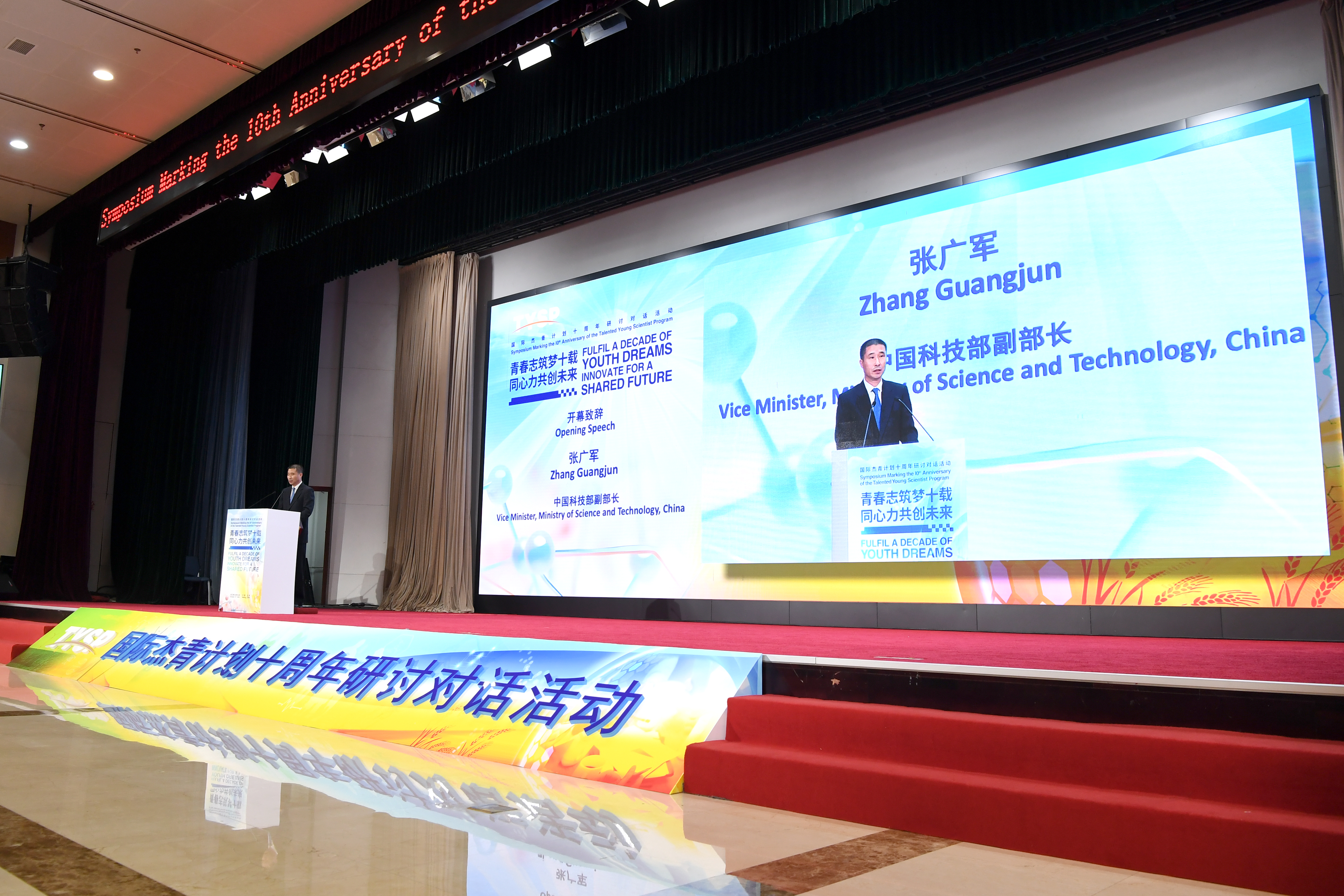Talented Young Scientist Program Celebrates 10th Anniversary

Zhang Guangjun, Chinese vice minister of science and technology, delivers a keynote speech during a symposium marking the 10th anniversary of the TYSP on October 31.
By?ZHONG?Jianli
Scientific and people-to-people exchanges serve as a bridge for enhancing mutual knowledge, trust and affinity in the science and technology community. The Talented Young Scientist Program (TYSP) launched by China's Ministry of Science and Technology (MOST) in 2013 offers young scientists from other countries a good opportunity to get acquainted with the latest sci-tech developments in China and promote international sci-tech cooperation, Zhang Guangjun, vice minister of China's Ministry of Science and Technology, said during a symposium marking the 10th anniversary of the program on October 31.
The TYSP has been welcomed by sci-tech institutions and young experts in the Belt and Road Initiative (BRI) partner countries, attracting more than 700 young scientists from about 40 countries to work and study in more than 200 institutions in China.
At the third Belt and Road Forum for International Cooperation in Beijing earlier in October, China announced eight steps to support high-quality BRI cooperation, including advancing innovation in science and technology and supporting people-to-people exchanges.
Sun Jian, deputy director?general of the Department of International Cooperation at MOST, said the TYSP has not only strengthened mutual trust for inter-governmental cooperation, but also provided convenient and efficient channels for universities, research institutions and enterprises of various countries to expand and deepen cooperation.
"It has also built an open and inclusive platform for young scientists from different countries to learn from each other," Sun added.
Addressing the event by video,?Yasser Refaat, vice minister of Egypt's Ministry of Higher Education and Scientific Research, said the TYSP "with its remarkable ability to nurture young scientists" has not only resulted in researchers' excellence but also significantly contributed to the exchange of innovative concepts and technological solutions for addressing global challenges.
Exchanges and cooperation under the TYSP have yielded results in various fields, such as agriculture, the life sciences, chemistry and chemical industry, materials, the environment and medicine.
Gao Xiang, director?general of China Science and Technology Exchange Center, said TYSP participants have worked together to build an open international innovation environment, carried out joint research to enhance scientific research capacity, and gained career development. There have been several academic achievements, including R&D papers, monographs and patents, which have contributed to global scientific and technological progress.
During the symposium, a collection of articles on the TYSP participants was released, which will provide helpful references for international sci-tech cooperation and cultivating young scientists in the future.







